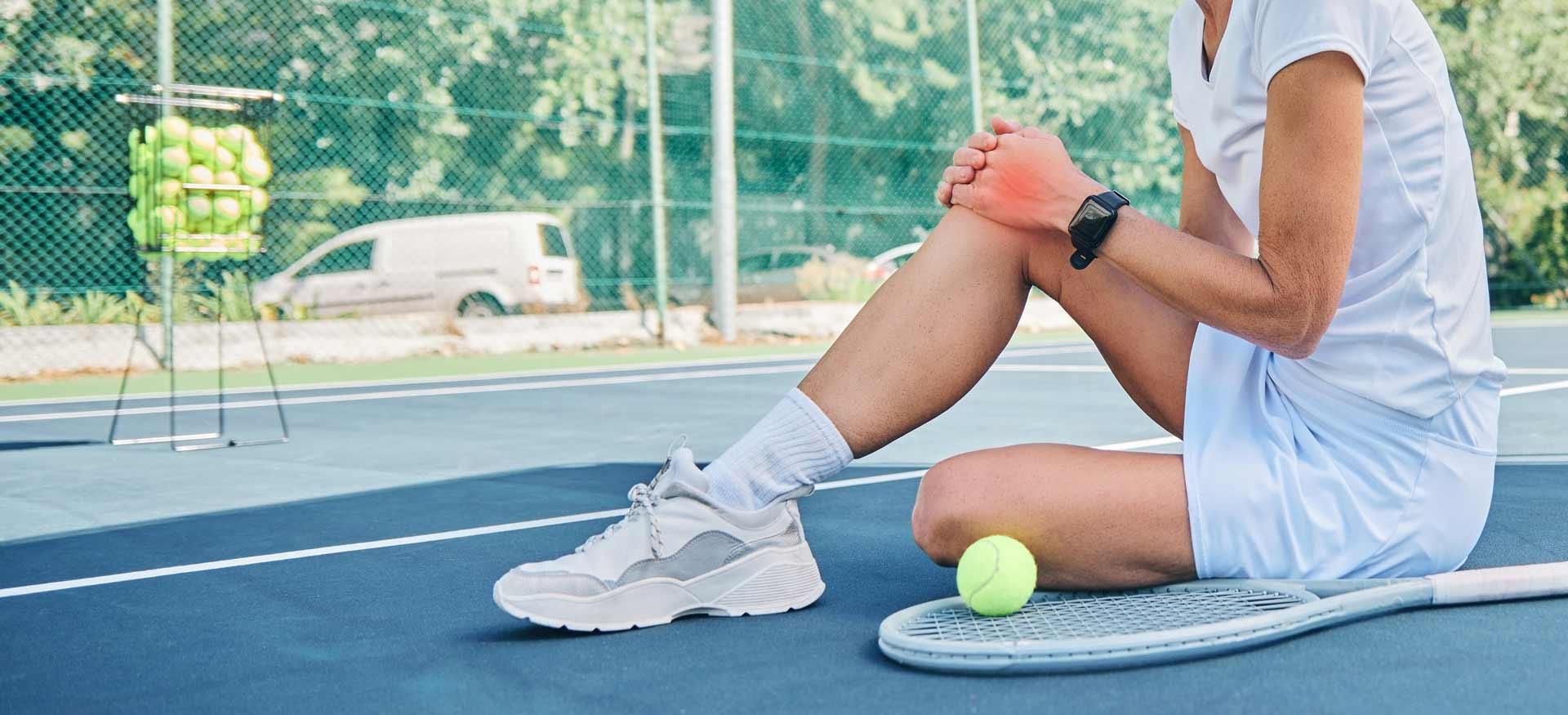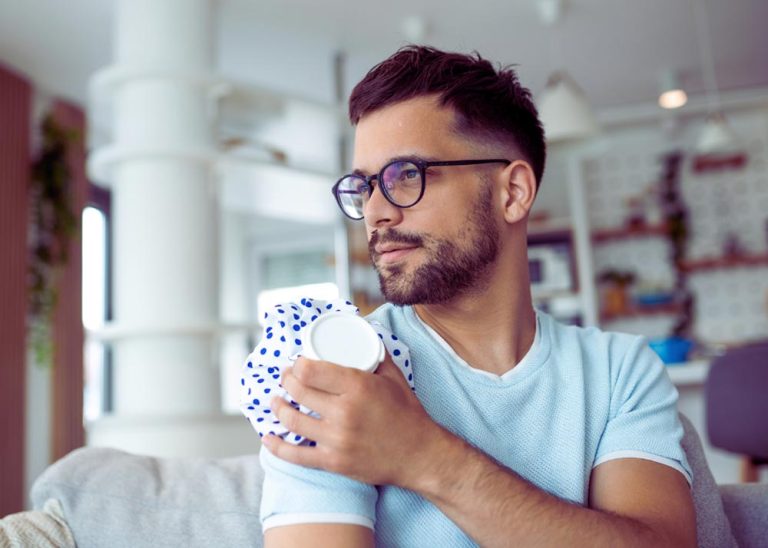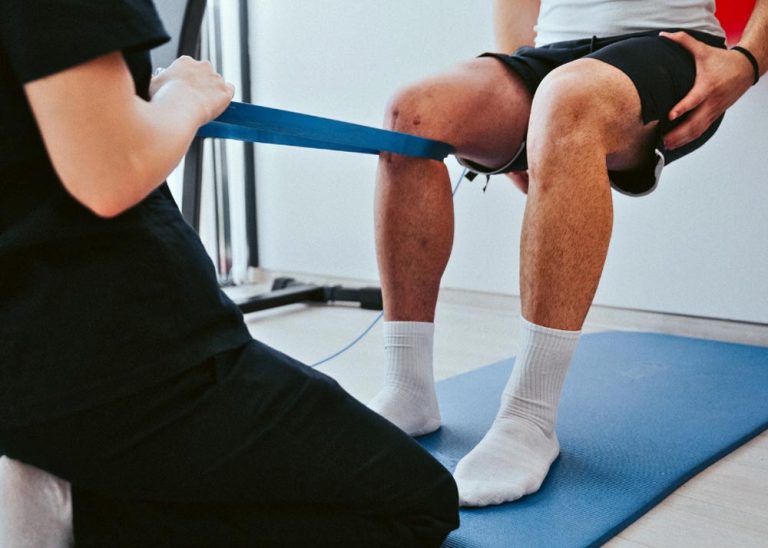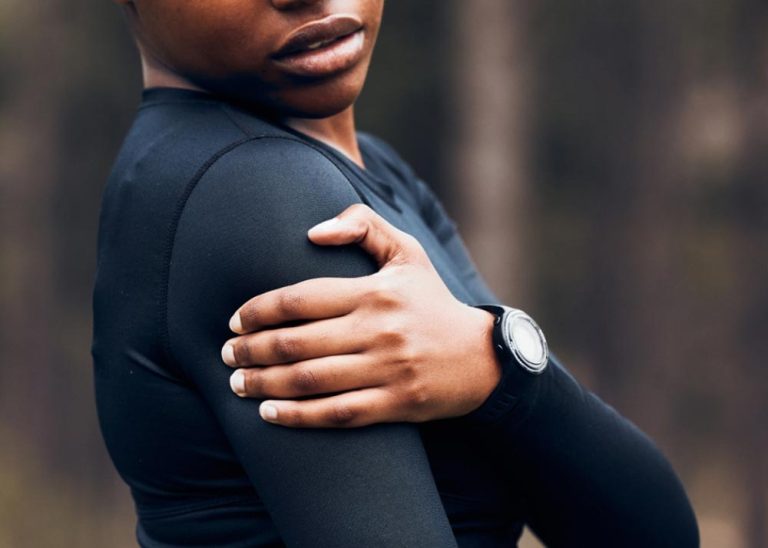
LEARN MORE ABOUT THE
Medial Collateral Ligament (MCL)
he MCL is a crucial ligament that provides support and stability to your knee joint. At OrthoKnox, our experienced orthopedic team specializes in diagnosing and treating MCL injuries, from mild sprains to severe tears. We offer comprehensive care in Knoxville, TN, including non-surgical options and advanced surgical techniques, to help you recover and return to an active lifestyle. Learn more about the MCL here.
Learn about our expert team of orthopaedic specialists.
Understanding the Medial Collateral Ligament (MCL)
What is the MCL?
The Medial Collateral Ligament (MCL) is a strong, fibrous band located on the inside of your knee joint. It connects your thighbone (femur) to your shinbone (tibia), providing essential stability to the knee. The MCL helps prevent your knee from bending too far inward.
How does the MCL work?
The MCL plays a crucial role in stabilizing the knee joint. Its primary function is to resist excessive inward movement of the knee. When you engage in activities that involve twisting or bending your knee, the MCL works in conjunction with other ligaments, tendons, and muscles to maintain the knee's alignment. Imagine the MCL as a strong, elastic band on the inside of your knee. When forces are applied to the outer side of the knee, the MCL stretches to prevent the knee from collapsing inward. This protective function is essential for everyday activities and especially important for sports that involve sudden changes in direction or physical contact.
MCL Injuries
MCL injuries often occur due to a direct blow to the outer side of the knee, such as a football tackle or a skiing fall. Sudden twisting or bending of the knee can also strain the MCL. Athletes participating in sports that involve cutting, jumping, or pivoting are at increased risk. While less common, repetitive stress on the knee from activities like squatting or lifting heavy objects can also contribute to MCL injuries. MCL injuries typically include the following symptoms:
- Pain on the inside of the knee
- Swelling
- Knee instability
- Tenderness
MCL Treatment
Treatment for an MCL injury depends on the severity of the tear.
- Non-surgical treatment: For mild to moderate MCL sprains, conservative approaches like rest, ice, compression, and elevation (RICE), along with physical therapy, are often effective.
- Surgical treatment: In cases of severe MCL tears or when combined with other knee injuries, surgery may be necessary. OrthoKnox offers advanced surgical techniques to repair or reconstruct the ligament.
Recovery and Rehabilitation
Recovery time for an MCL injury varies depending on the severity of the injury and the chosen treatment plan. Physical therapy plays a crucial role in restoring strength, flexibility, and stability to the knee.
MCL Treatment and Surgery in Knoxville, TN and the Knox County Area
To explore your treatment options, call OrthoKnox at 865.251.3030 or request an appointment online.
Disclaimer: This information is intended for general knowledge and informational purposes only and does not constitute medical advice. Always consult with a qualified healthcare professional for diagnosis and treatment of any medical condition.

EXCELLENT. I can't say enough good things...[My provider] was kind, caring, compassionate, knowledgeable, explained my options now and in the future…Very personable. Any patient would be extremely blessed to have him as your provider. HIGHLY RECOMMEND.
— J.R.
The staff and the doctors are friendly and caring. They listen to what you have to say and answer your questions so that you understand. I highly recommend ORTHOKNOX!
— S.W.
My son suffered a torn ACL, MCL, and meniscus and broken cartilage in the high school football playoffs last season. Dr.Hovis performed surgery and my son was able to play the first game of the season this year! Dr. Hovis was great! We appreciate him so much!
— L.A.
Excellent experience. Mike took great care of me and was very thorough helping me figure out a complicated problem. 10/10 would recommend.
— S.G.
Neil is patient, responds to all my questions, provides objective options and delivers compassionate care. Never once did I feel rushed or uninformed.
— K.U.
My physical therapist was knowledgeable and personable and made me feel at ease throughout the entire session. I appreciated the thorough explanation of the treatment plan and the clear instructions on how to continue the exercises at home. I highly recommend this physical therapist to anyone needing care.
— W.C.
OrthoKnox is an excellent place. I had total knee replacement 3 weeks ago, and I am recovering beautifully. All my friends and family cannot believe how far I’ve come in just 3 weeks. The staff is very kind, caring and take the time to ensure that all my concerns, fears and questions are resolved. Dr. Hovis and his PA, Neil Stoner, are the best.
— P.S.
Instantly felt at ease and reassured with my daughter’s care. Professional, informative and great bedside manner!
— M.P.
Everyone here has been amazing since first coming in through diagnosis, surgery, and now the recovery phase. Couldn't recommend these people enough.
— D.I.
All the doctors and staff at OrthoKnox including those in the physical therapy department, are very caring, and competent. I have been very satisfied with both the surgery outcome as well as the recovery. One nice thing is there is very little wait time after you arrive at your appointed time.
— G.V.
Very friendly and prompt! Always a good experience at this office. Lovely staff!
— R.B.
Laura has been great! She has been extremely friendly and professional at every visit. She has helped me make substantial improvement in my injury.
— W.O.
Delightful, helpful, encouraging, professional group. I am very grateful for their kindness.
— G.M.
Dr. Hovis has taken care of me the past 12 years. Started out with knee surgery and later in life with a shoulder that needed an injection. I would never go anywhere else because he is the best, and he cares. My last visit a couple of months ago was like seeing a family member again. You’re in good hands here.
— J.S.
LEARN MORE
On Our Blog
7 Tips for Faster Rotator Cuff Surgery Recovery
We wish we could wave a magic wand and all our patients would instantly recover from their rotator cuff surgery, but it requires time and diligence before your arm and […]
6 Important Exercises to Do After ACL Reconstruction Surgery
There is a fine balance of exercises to do after an ACL tear since you want to challenge yourself to improve but also do not want to cause further pain […]
Physical Therapy for a SLAP Tear
A tear in the upper portion of the labrum where the biceps tendon attaches is known as a SLAP tear. SLAP stands for superior, labral, anterior to, posterior. A SLAP […]



